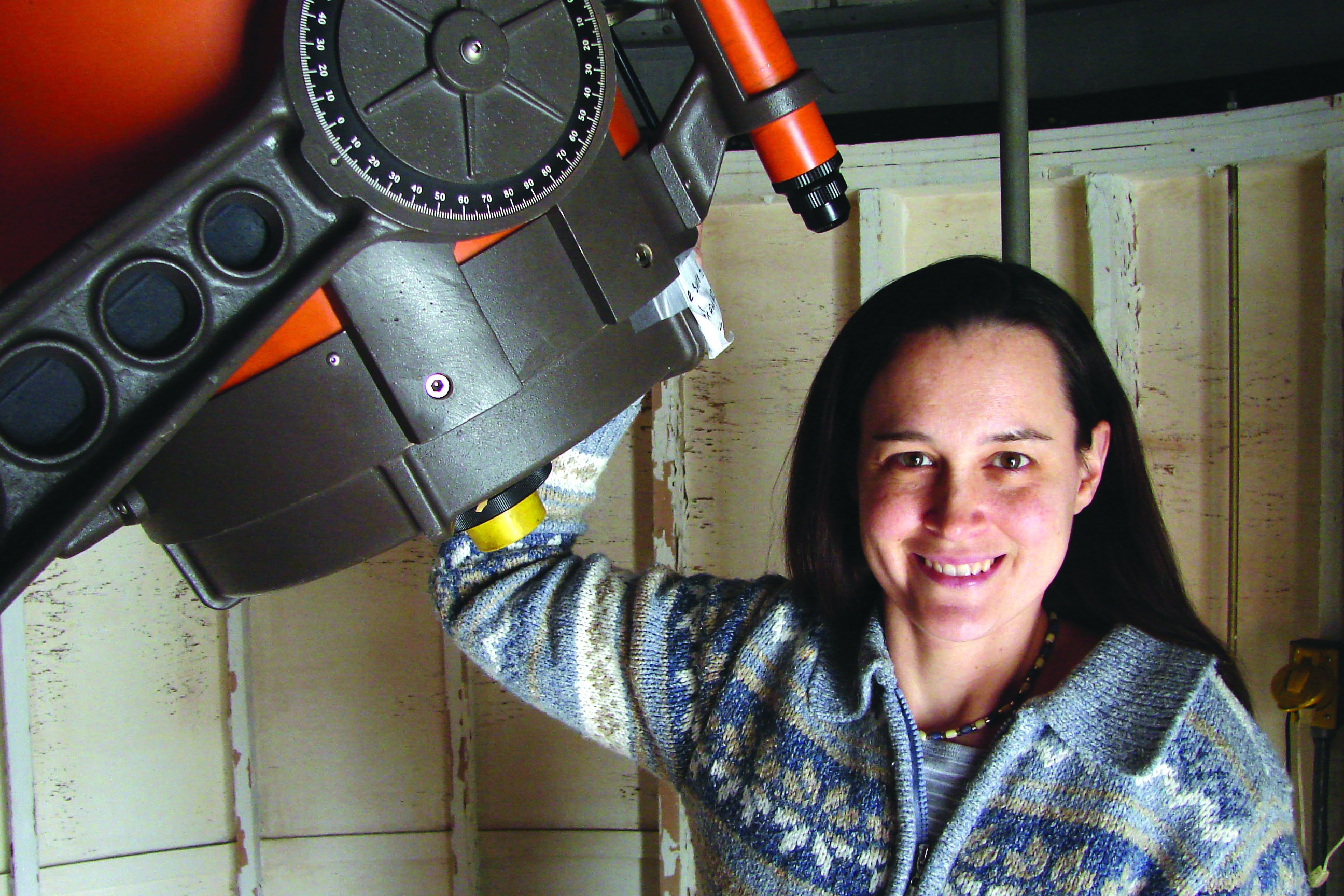 Charleston, W.Va. – This month, the Chancellor’s STEM Speaker Series event will feature a scientist from West Virginia University (WVU) who is on the leading edge of internationally-renowned gravitational wave research. Astrophysicist Maura McLaughlin will discuss West Virginia University’s (WVU’s) involvement in the recent discovery that provides evidence of ripples in space-time one hundred years after Albert Einstein first predicted their existence.
Charleston, W.Va. – This month, the Chancellor’s STEM Speaker Series event will feature a scientist from West Virginia University (WVU) who is on the leading edge of internationally-renowned gravitational wave research. Astrophysicist Maura McLaughlin will discuss West Virginia University’s (WVU’s) involvement in the recent discovery that provides evidence of ripples in space-time one hundred years after Albert Einstein first predicted their existence.
The Chancellor’s STEM Speaker Series is organized by the Higher Education Policy Commission’s (HEPC’s) Division of Science and Research with support from a federal grant from the National Science Foundation. The goal of the series is to promote the importance of research and the science, technology, engineering and math (STEM) fields to all West Virginians.
“It is an honor to have Dr. McLaughlin speaking at this event,” Dr. Paul Hill, Chancellor of the HEPC, said. “She is a pioneer in the STEM field and an inspiration to students wishing to pursue a STEM career. We are thrilled to have her discuss the groundbreaking work she and her team are accomplishing right here in West Virginia.”
McLaughlin’s ongoing research involves looking for distortions in radio waves emitted by large celestial objects known as pulsars. Her discussion at the STEM Speaker Series event will focus on how this research is not only putting West Virginia on the research map but also how it is positively affecting education in the Mountain State.
The discussion, which is titled Waves of the Future: How Gravitational Waves are Transforming Research and Education in West Virginia, will take place at the West Virginia State University (WVSU) Capitol Center Theater on Summers Street in downtown Charleston on Thursday, September 14, 2017, at 7 p.m. Tickets are free, but due to space constraints, they must be obtained in advance via www.wvresearch.org.
McLaughlin is chair of the North American Nanohertz Observatory for Gravitational Waves (NANOGrav) collaboration. The team was originally funded by a $6.5 million award from the National Science Foundation (NSF) as part of the Partnerships for International Research and Education (PIRE) program and is now an NSF Physics Frontier Center. McLaughlin was also fundamental in the discovery of the double-pulsar system as well as in the discovery of several new pulsars. She received a bachelor’s degree in astronomy and astrophysics from Pennsylvania State University and obtained a Ph.D. in astronomy and space sciences from Cornell University in 2001. Currently, she is a professor of astronomy at WVU.
The Division of Science and Research directs the EPSCoR program in West Virginia, while also managing other state and federally-funded academic research programs across the state. The program provides strategic leadership for infrastructure advancement and development of competitive research opportunities in STEM disciplines.